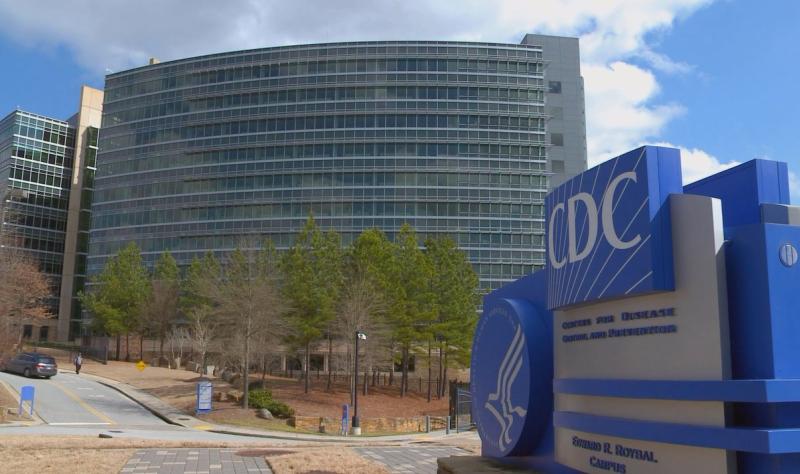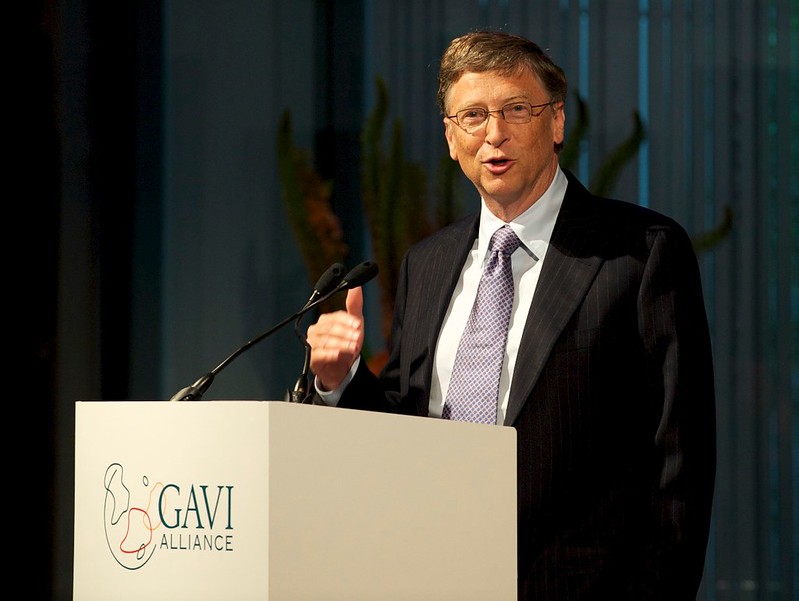Analysis | Covid vaccinations among babies and toddlers aren’t likely to surge


Helloo, good morning. There’s a program in New Jersey that’s saved thousands of turtles. Send us your best tips and animal news at rachel.roubein@washpost.com.
Today’s edition: Production is paused again at the plant at the heart of the baby formula plant, this time due to flooding from a severe storm. Anthony Fauci, Biden’s chief medical adviser, tests positive for the coronavirus. But first …
Convincing parents of young kids to get them vaccinated will be tricky
The quest to vaccinate the youngest kids cleared a key hurdle yesterday, inching closer to potential authorization in the coming days. But for the Biden administration and other public health officials, the work is only just beginning.
Their next goal is to persuade skeptical parents to embrace the shot, as polls show the majority of parents won’t rush to get their children under 5 vaccinated. The messaging will be tricky amid two vaccine options with different shot regimens and highly transmissible variants that have a remarkable ability to evade immune protection from vaccinations.
This rollout, more than any other, will rely on doctors having frank conversations with parents about the vaccine — potentially over the course of several visits. It’s likely there will be a gradual uptick in vaccinations among babies and young children, rather than a huge surge.
The Biden administration has acknowledged as much. White House officials have expressed optimism that interest in the vaccine will grow over time, but noted they don’t have internal targets on what that number should look like in the coming weeks.
- “Vaccine confidence builds over time. It builds with trusted voices, physicians, faith leaders, others helping people get vaccinated,” Ashish Jha, the White House coronavirus czar, recently told reporters.
The latest
Yesterday, independent advisers to the Food and Drug Administration recommended use of the Moderna and Pfizer-BioNTech coronavirus vaccines for babies and young children, our colleagues Laurie McGinley, Yasmeen Abutaleb and Katie Shepherd report.
The vote to endorse the shots was unanimous. The outside experts said the benefits of the vaccine outweighed the risks — the standard for an emergency use authorization — though there were differences of opinion about how much the shots would help a population at lower risk of becoming seriously ill or dying of covid. The FDA says it expects the vaccines to work better at preventing severe illness than at stopping infection.
But there are still several more steps to go before the shots get the final greenlight. The vaccines need sign-off from the FDA, advisers to the Centers for Disease Control and Prevention, and then from the CDC itself.
The Pink Sheet’s Sarah Karlin-Smith:
Peter Marks – we are dealing with an issue where we have to be careful not to become numb to the number of pediatric deaths because of the overhwemingly number of older deaths.
— Sarah Karlin-Smith (@SarahKarlin) June 15, 2022
What’s next
If all goes as expected, the shots could be available next week. That means the administration is gearing up to ship the vaccines at the same time doctors are readying their messaging strategies on how to talk to parents once they receive them.
“It’s going to be, I think, a big lift on the part of public health officials and others to communicate whatever gets decided to the public,” said Jen Kates, a senior vice president at the Kaiser Family Foundation (KFF).
In a recent KFF survey, only 18 percent of parents said they were eager to get their child vaccinated right away. A large share, roughly 38 percent, said they plan to wait a while to see how the vaccine is working. Meanwhile, about 4 in 10 parents are more reluctant.
That dynamic has left health officials grappling with the right messaging to stave off widespread vaccine hesitancy. Such efforts are intensifying, and here’s a snapshot:
- The Biden administration is working on various public education efforts with a range of national organizations, such as the American Library Association, American Academy of Family Physicians and the Association of Children’s Museums.
- The American Academy of Pediatrics is planning to launch new social media graphics and a public service announcement available in both English and Spanish featuring children asking their pediatrician questions.
- The National Association of Community Health Centers is talking with the White House and CDC on the best messaging and outreach strategies.
But even as these plans rev up, some officials steeped in vaccine planning have raised the prospect of a shift in how Americans view the vaccine. Instead of rushing to get the shot, some have speculated that parents may wind up saying yes to the vaccine when they bring their child into a pediatrician’s office for other routine care or immunizations.
- “I think there may be a bit of a shift in this group — six months to 5-year-olds — where we may shift to really more of a being up-to-date with childhood vaccine message and strategy, as opposed to get your kid the covid-19 vaccine,” said Marcus Plescia, the chief medical officer of the Association of State and Territorial Health Officials.
Agency alert
Flooding pauses production at baby formula plant at heart of shortage
Production and distribution of a specialty baby formula will likely be delayed another few weeks after portions of Abbott Nutrition’s plant in Sturgis, Mich., flooded due to a severe storm earlier this week.
The company said it stopped production of EleCare, a specialty amino acid-based formula for children with multiple allergies, to assess the damage from the storm, as well as to clean and re-sanitize the plant.
The new setback in alleviating the country’s baby formula shortage comes more than 10 days after Abbott resumed production at the shuttered plant — a move that offered hope to parents that the shortage could soon ease. The factory was previously closed after an FDA inspection turned up allegedly unsanitary conditions.
Abbott acknowledged the new delay in a news release, saying the company has informed the FDA of the issue and will conduct comprehensive testing with an independent third party to make sure the plant is safe to resume production.
In a string of tweets, FDA Commissioner Robert Califf called the incident an “unfortunate setback,” while seeking to reassure the public that there is more than enough supply to meet the demand amid the government’s efforts to address the shortage. The growing concern about the shortage led the administration to fly in formula from overseas — and prompted an admission from Biden that he didn’t become aware of the issue until two months after industry leaders knew they were facing a crisis.
More from Califf:
Today, we were made aware of the weather-related situation at Abbott’s Sturgis, Mich. facility. I personally spoke to the CEO tonight and we discussed our shared desire to get the facility up and running again as quickly as possible.
— Dr. Robert M. Califf (@DrCaliff_FDA) June 16, 2022
Coronavirus
Fauci tests positive for coronavirus
Anthony Fauci, a top government infectious-disease expert and Biden’s chief medical adviser, tested positive for the coronavirus yesterday, our colleague Dan Diamond reports.
Fauci, 81, is vaccinated against the coronavirus and has received two booster shots, and is experiencing mild symptoms. Before testing positive, Fauci hadn’t been in proximity recently to Biden or other senior health officials.
In April, Fauci declared that the United States had moved out of the “full-blown pandemic phase” but has continued to warn of risks from covid-19. He had not previously tested positive for the virus.
Fauci is slated to testify at a Senate HELP Committee panel this morning about the federal government’s coronavirus response, and will now appear remotely.
Jonathan Reiner, cardiologist:
Wishing Dr Anthony Fauci a quick recovery. Because he is fully vaccinated and double boosted he should do very well. https://t.co/oJNtiMiNhS
— Jonathan Reiner (@JReinerMD) June 15, 2022
In the courts
Supreme Court overturns cuts to drug discount program
In a win for the hospital industry, the high court unanimously rejected a nearly 30 percent cut in payments to hospitals for drugs purchased through the 340B drug discount program.
Hospitals sued to stop the policy, which they have fiercely opposed since President Donald Trump first implemented it. The federal 340B drug pricing program lets health facilities that serve large numbers of low-income patients buy certain drugs at a discounted price.
“The text and structure of the statute make this a straightforward case,” the opinion from Justice Brett Kavanaugh states. “Because HHS did not conduct a survey of hospitals’ acquisition costs, HHS acted unlawfully by reducing the reimbursement rates for 340B hospitals.”
In a statement, the American Hospital Association and other industry groups said they “look forward to working with the Administration and the courts to develop a plan to reimburse 340B hospitals” impacted by the cuts.
White House prescriptions
Biden responds to wave of transgender-aimed laws
Biden signed an executive order yesterday aimed at curbing a wave of what the administration refers to as “discriminatory legislative attacks” against transgender individuals by Republican-led states.
Key context: More than 300 such laws have been introduced in state legislatures this year, which include a raft of restrictions on transgender health care, particularly for minors, according to the White House.
Included in Biden’s executive order are orders for the Department of Health and Human Services to:
- Consider guidance clarifying that federally funded programs cannot offer “conversion therapy” — a discredited practice that aims to change a person’s sexual orientation or gender identity
- Work with states to expand gender-affirming care and access to evidence-informed mental health care for LGBT youth
- Publish a “Bill of Rights” for LGBT seniors to offer guidance on preventing discrimination of adults in long-term care facilities
State scan
Tension over role of racism in public health strains Va. agency
There’s tension brewing in Virginia over the role of racism in health disparities under the state’s new chief public health official Colin Greene, The Post’s Jenna Portnoy writes.
Since being appointed to lead the Virginia Department of Health five months ago, Greene has rejected the state-recognized declaration that racism is a public health crisis. Greene’s approach dovetails with efforts by the administration of Gov. Glenn Youngkin (R) to reverse work done under Gov. Ralph Northam (D) to acknowledge and address all forms of racism, Jenna reports.
- Greene maintains that racism is a “politically charged” word that will undermine the state’s health department from protecting the well-being of all Virginians, 40 percent of which identify as non-White.
- In doubting the well-established link between structural racism and health disparities, Greene said he will establish an investigative unit to look into the driving factors behind inequities like high rates of Black maternal and infant mortality.
In other health news
- The Biden administration is expected to release its new defense strategy against future pandemics and other biological threats that incorporates lessons learned from the covid-19 pandemic as soon as this month, Bloomberg News reports.
- Naral Pro-Choice America yesterday launched its first series of ads on the Supreme Court’s looming decision that could overturn Roe v. Wade in an attempt to mobilize voters in Arizona, Georgia and Michigan.
- The Senate yesterday advanced bipartisan legislation to extend health care and disability benefits to veterans who were exposed to toxic chemicals from burn pits during their service. Lawmakers will vote this morning on final passage of the bill, which is expected to pass.
Health reads
100 Million People in America Are Saddled With Health Care Debt (Noam N. Levey l Kaiser Health News)
Sugar rush
Thanks for reading! See y’all tomorrow.


